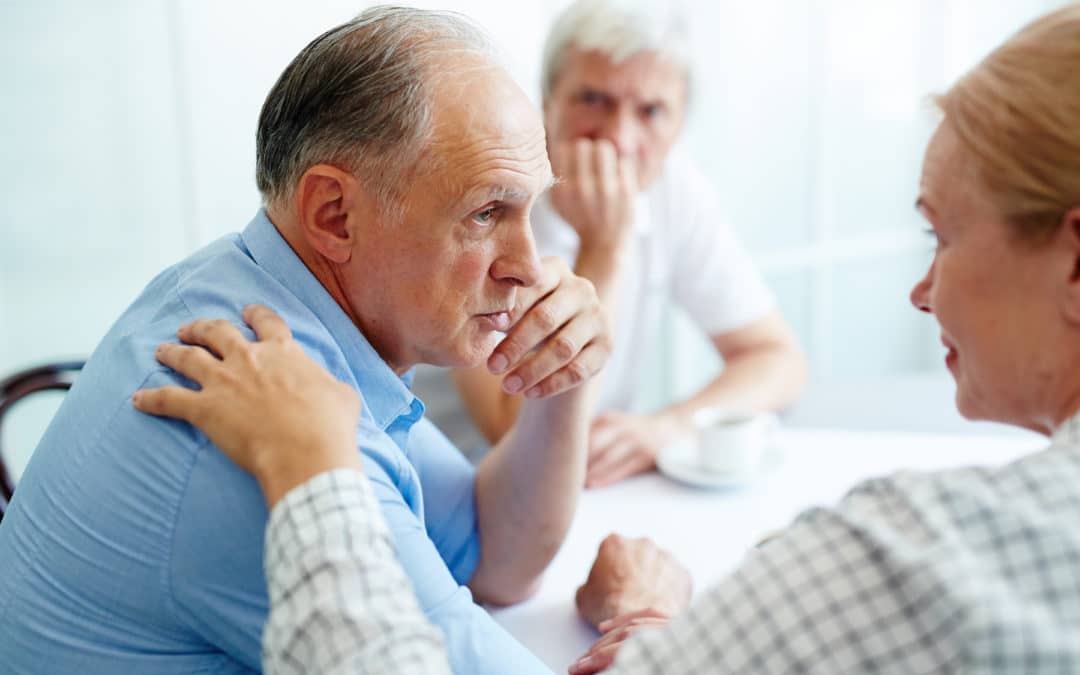A cancer diagnosis after asbestos exposure can be devastating–not only physically and financially but mentally and emotionally as well. Mesothelioma patients may feel isolated, alone, stressed, anxious, and overwhelmed. Mesothelioma support groups can help patients by connecting them to others going through a similar experience, providing a much-needed network of emotional support from peers who understand.
Additionally, family members and caregivers of mesothelioma patients may also need support and can rely on groups of others going through a similar situation to help.
Support Group Benefits
There are several benefits to joining a mesothelioma support group. They include:
- Companionship in the Mesothelioma Community: Support groups can help patients and their loved ones to feel less alone in their battle against cancer. It can be comforting for patients to simply be around other people who understand their situation.
- Hope: Seeing other survivors can renew a sense of hope in support group attendees. Talking with others can help patients feel a renewed sense of motivation or empowerment.
- Improved Mental Wellbeing: Support groups can offer coping strategies for depression, anger, anxiety, stress, and fatigue.
- Professional Resources: Professional therapists, financial planners, doctors, and social workers teach patients skills to cope with the challenges of their cancer diagnosis. This can help mitigate the anxiety and isolation patients and their families may feel when facing the disease head-on.
Types of Support Groups
A mesothelioma diagnosis can take its toll, not just on the patient but on their loved ones and caregivers as well. As such, there are a variety of different support groups available aimed at helping each of these groups cope.
Mesothelioma support groups include options for:
- Mesothelioma patients: While it’s a rare disease and can cause feelings of isolation in patients, these groups allow mesothelioma patients to connect with and find emotional support in one another.
- Mesothelioma survivors: Following treatment, survivors will likely continue to face physical and emotional hardships. These groups can help survivors adjust to their new normal and can help them discover coping mechanisms that work for them.
- Caregivers: Caregivers may face emotional distress and physical symptoms, such as fatigue, due to their role. These groups provide caregivers with valuable resources and support.
- Family Members: When a patient is diagnosed with mesothelioma, their family and loved ones face their own set of struggles. These groups give family members a safe space to share their experiences and express their emotions.
- Veterans: Since veterans are disproportionately affected by mesothelioma, there are specific support groups for them. These groups take into consideration the unique experience and needs of those who have served.
How to Find the Right Support Group
Finding the right support group for you or your loved one can be overwhelming, especially with the number of options available. We recommend first determining your needs–some people prefer in-person sessions, while others would rather stay online. Depending on the specific needs and situation, there are support groups for everyone.
Things to Consider:
- The group’s mission statement
- The time, frequency, and location of meetings
- Meeting format
- Group leader (is it a doctor? A patient? A survivor? etc.)
It’s important that patients find a mesothelioma support group that best fits their unique needs. Researching online is a great place to start.
Mesothelioma Support at Shrader Law
If you’ve developed mesothelioma as a result of being exposed to asbestos, you may be owed compensation for the expenses related to your illness as well as the pain and suffering you’ve endured. Don’t hesitate to reach out to our office with your questions right away.
Contact our experienced team here at Shrader & Associates L.L.P. to learn more about how we can help with your case. Give us a call at (833) 231-4601 or fill out the online contact form to get in touch with an attorney today.

